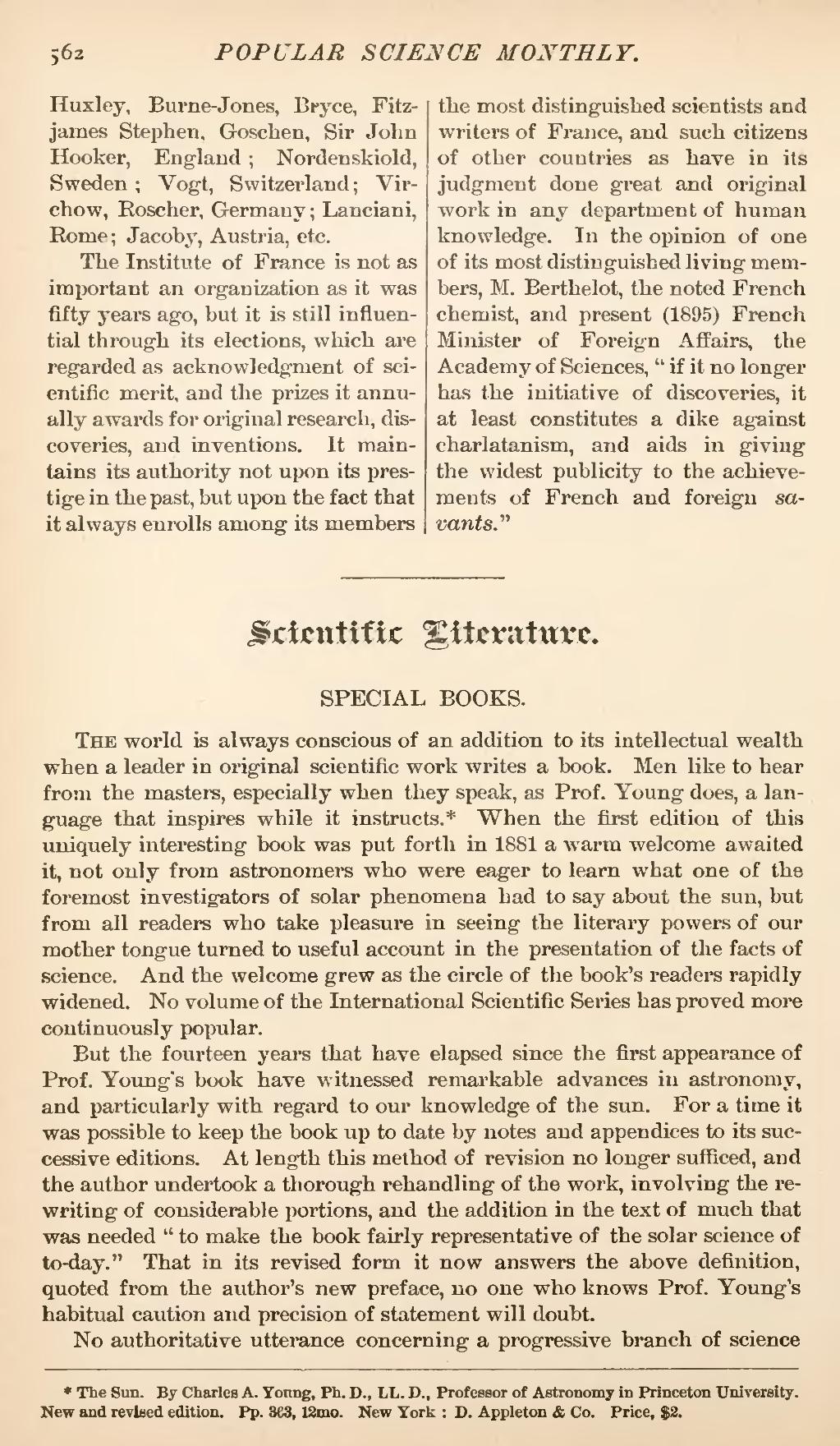Huxley, Burne-Jones, Bryce, Fitzjames Stephen, Goschen, Sir John Hooker, England; Nordenskiold, Sweden; Vogt, Switzerland; Virchow, Roscher, Germany; Lanciani, Rome; Jacoby, Austria, etc.
The Institute of France is not as important an organization as it was fifty years ago, but it is still influential through its elections, which are regarded as acknowledgment of scientific merit, and the prizes it annually awards for original research, discoveries, and inventions. It maintains its authority not upon its prestige in the past, but upon the fact that it always enrolls among its members the most distinguished scientists and writers of France, and such citizens of other countries as have in its judgment done great and original work in any department of human knowledge. In the opinion of one of its most distinguished living members, M. Berthelot, the noted French chemist, and present (1895) French Minister of Foreign Affairs, the Academy of Sciences, "if it no longer has the initiative of discoveries, it at least constitutes a dike against charlatanism, and aids in giving the widest publicity to the achievements of French and foreign savants."
SPECIAL BOOKS.
The world is always conscious of an addition to its intellectual wealth when a leader in original scientific work writes a book. Men like to hear from the masters, especially when they speak, as Prof. Young does, a language that inspires while it instructs.[1] When the first edition of this uniquely interesting book was put forth in 1881 a warm welcome awaited it, not only from astronomers who were eager to learn what one of the foremost investigators of solar phenomena had to say about the sun, but from all readers who take pleasure in seeing the literary powers of our mother tongue turned to useful account in the presentation of the facts of science. And the welcome grew as the circle of the book's readers rapidly widened. No volume of the International Scientific Series has proved more continuously popular.
But the fourteen years that have elapsed since the first appearance of Prof. Young's book have witnessed remarkable advances in astronomy, and particularly with regard to our knowledge of the sun. For a time it was possible to keep the book up to date by notes and appendices to its successive editions. At length this method of revision no longer sufficed, and the author undertook a thorough rehandling of the work, involving the rewriting of considerable portions, and the addition in the text of much that was needed "to make the book fairly representative of the solar science of to-day." That in its revised form it now answers the above definition, quoted from the author's new preface, no one who knows Prof. Young's habitual caution and precision of statement will doubt.
No authoritative utterance concerning a progressive branch of science
- ↑ The Sun. By Charles A. Young, Ph. D., LL. D., Professor of Astronomy in Princeton University. New and revised edition. Pp. 363, 12mo. New York: D. Appleton & Co. Price, $2.

